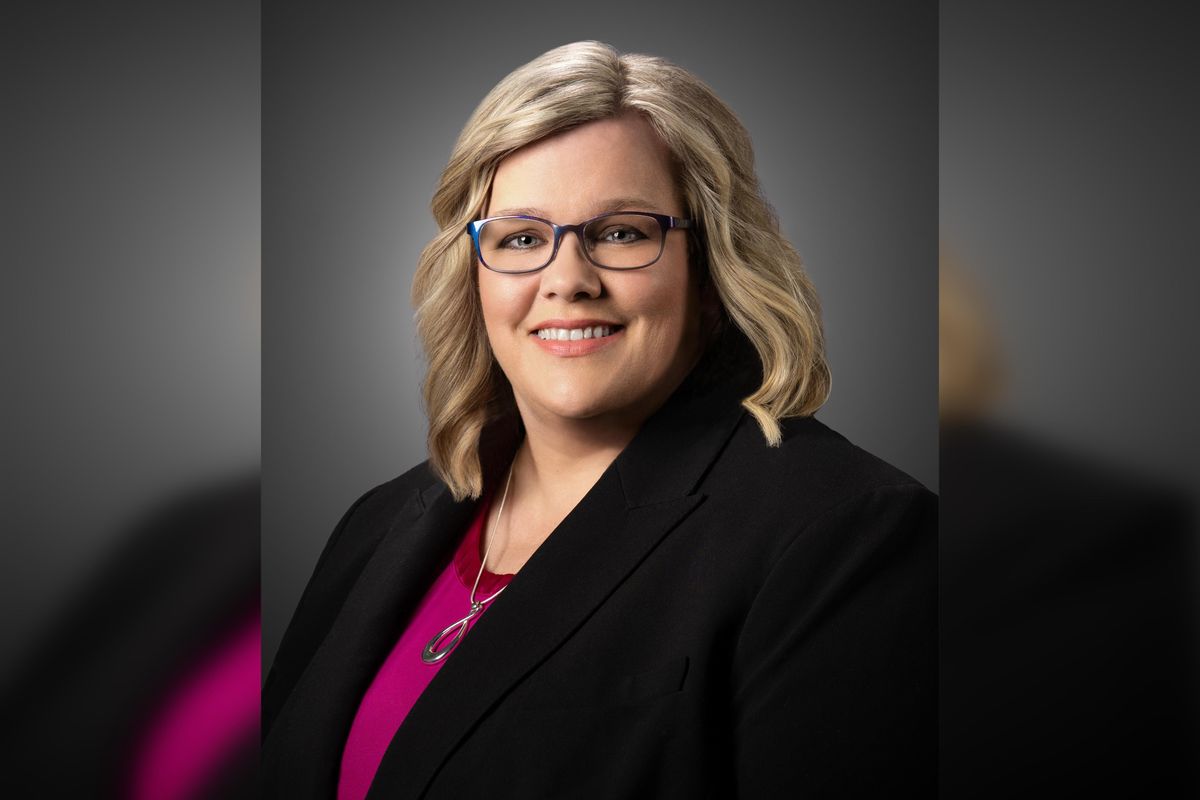Marshall Law's wife, Melissa, surprised him and his two sons with tickets to see the Astros play at home in the 2017 World Series against the Los Angeles Dodgers, but a rush to get to the game and a packed stadium lead to him waiting in a long concessions line in the second inning.
Law watched on a TV screen next to the food counter as the fourth pitch from Yu Darvish to Yuli Gurriel hit two rows past the Laws' seats, bouncing back toward where they were supposed to be sitting. Law couldn't shake the feeling of missing out on the homer. Why couldn't someone have brought them the food, he thought. He'd have paid $50 — maybe more — to not miss that moment.
"Everything gets delivered these days. Any kind of food to your groceries, all right to you. Why isn't someone doing this?" Law says he was thought as he walked out of the game.
From the parking lot, he called his friend, Aaron Knape, and an idea was born.
"I never want a dad to miss a moment as I did ever again," Law said.
Play in motion
Law and Knape set out on finding, designing, and implementing an app and process, now known as sEATz, that would keep fans from ever having to miss a moment of a game again.
Knape got his master's degree from Rice University and stayed in touch with his fellow alumni over the years. It was actually at Rice where Knape realized Houston might just be the perfect place for something like sEATz to get off the ground. Houston, he says, is in the midst of an entrepreneur revolution.
At the forefront of that revolution is Lawson Gow, founder, and CEO of The Cannon, a startup and tech hub for companies to grow and get support. Gow — son of David Gow, owner of InnovationMap's parent company Gow Media — says the Cannon houses almost 85 companies in a 20,000 square foot space where they attempt to meet all their companies needs. Cannon Ventures, one of those support systems, is an investment network which focuses on assisting startups.
"We ran into to Lawson at an event, and he loved the idea," Knape said.
Sports technology is a focus of one of The Cannon, and Gow says he feels like sEATz is "off to the races" as a startup, with hosting early events at Rice football and the Sugar Land Skeeters games.
Getting on base
Having met Tanner Gardner of Rice's athletics department, Knape approached him with the idea. When Gardner saw the opportunity to add concession stand deliveries to the Owls fan's experience with sEATz, he took it, though he said he was "cautiously optimistic."
"I told them I thought they had a solution to a problem that exists and the challenge for you is convincing the concessionaires that this is something worth their while."
He mentioned to sEATz he believed stadium concessions wasn't a type of business to easily to take innovation and change their style especially if they believed their model worked. Law said there were reservations from concessions at first but the vendors eventually saw the benefit. sEATz orders regularly exceeded the typical total of purchase by a customer.
Rice Stadium is the first of what Knape and Law hope will be many venues to offer sEATz compatibility. The two sEATz leaders aren't reinventing the wheel, but their wheel is finally ready for the road. For years, stadiums lagged behind the digital demands of fans. Many lacked the capability for in-venue phone usage just a couple of years ago. Most venues now support and even encourage the use of apps and phones to improve the fan experience.
"I think it's worked very well," Gardner added. "Often the best sign a new product or a new service is working at our events is the lack of complaints about it. People are always quick to provide you with constructive criticism on things that are not going well."
But Gardner hasn't heard much other than praise so far.
"I didn't hear one negative thing about sEATz during the season and I also heard positive things."
Gametime decisions
The positive feedback comes in part from the user-friendly interface of the app. From your seat, you open the app and select the venue you are in and then type in your section, row, and seat number. The next screen is the stadium's finest fare at your fingertips. While perusing the stadium's offerings — with pictures — you make your selections and head to your cart. There you check out with whatever credit or debit card you've added to your profile. Then, sit back and enjoy the game.
On the sEATz's end of things, their work has just started. One team member assigns the order to a runner. The runner can see the entire order on their phone through a web portal. They head to each vendor who has a particular item, sometimes involving stops at multiple locations. The runners have their own line. The vendors, depending on preference, either keep track of what sEATz picks up and settles at the end of the day or checks them out right there with a sEATz credit card. After all the items in the order are picked up the sEATz runner presses "picked up" in their web portal. Then they head off to the patron's seat to deliver the order. Then, after delivery, the runner presses "delivered" on their end and is ready to be assigned another order.
The sEATz runners currently carry their own trays which are repurposed drink crates. Law says that runners will eventually carry specially designed and branded sEATz trays. Runners have the option to call or text the person who has ordered through the sEATz app to clarify their location or if they aren't in their seat. Runners are assigned to different regions of the stadium, so they aren't running all around.
There's an educational component to the delivery process too.
"We get to teach the runners about the game while doing this too," Law said.
He says that when they are in Constellation Field for Sugar Land Skeeters games, runners try not to deliver in the middle of an at-bat or while the ball is in play. Law wants other fans to notice runners and be jealous by their speedy delivery — not angry for interrupting.
The sEATz runners are currently all Westbury High School football players. Law reached out to a friend to see if his athletes would be interested in making a few extra dollars on the weekends.
"You get into the game and you get to make a few bucks doing it, these kids have been great for us," Law said.
He mentioned initially there was concern over who would be the workforce for sEATz, but now both sides of the equation are happy. Users can tip the runner like most delivery services, and some runners have made over $100 in tips in one day. Eventually, sEATz wants to institute a runner grading system to assist in rewarding runners who consistently perform well.
The game plan
The immediate future is making sure all parties associated with sEATz are successful, according to Knape. He said they have to service the fan but also make sure the concession stand is successful as well. They never want to hinder the operating procedure of a vendor. They also want to continue to tweak the app's design to make it even easier to use for fans. Right now food and non-alcoholic beverages are available on the app. In the future, sEATz plans to deliver alcohol and even apparel from the team stores.
Then, of course, there is the process of scaling up for larger events. Right now, sEATz has run test events on about 5,000 fans. However, when Rice hosted Houston they easily handled the stadium full of nearly 10,000 fans. Law said being in every venue is the eventual goal, but, he always wants to be ready for the size of the crowd.
Gow says that sEATz will be able to scale its technology, which is far more advanced than most products this early in their lifespan.
"We've been doing some walking before we've been doing some running," Gow said. "But, you can imagine the domino effect of one major professional sports team embracing it and the fans almost demanding that it exists in other stadiums and other sports teams and it spreading like wildfire."
Law knew they were on to something bigger than just delivering a hot dog and a drink. During one event, a mother stopped him and mentioned she loved the idea of the app. Her son was special needs and required a wheelchair. She told Law she loved sEATz because her son now didn't have to miss a moment of the game and they didn't have to make the daunting trek to the concession stand and the inevitable line with his chair. Another time Law was stopped by an elderly Rice fan. She explained sEATz could take her order and deliver her food to her before she could even leave her seat in the first few rows and make it to the concourse.
"I was just thinking about dads and kids not missing the game," Law said. "I was blown away to hear those stories."
Ease of use
Users can download the free app and pay a small fee to get food delivered to their seats.

 Kelly Pracht is the CEO and co-founder of nVenue. Photo courtesy of nVenue
Kelly Pracht is the CEO and co-founder of nVenue. Photo courtesy of nVenue
 Data science startup based in Houston focus on neuroscience software nabs $3.78M grant
Data science startup based in Houston focus on neuroscience software nabs $3.78M grant











